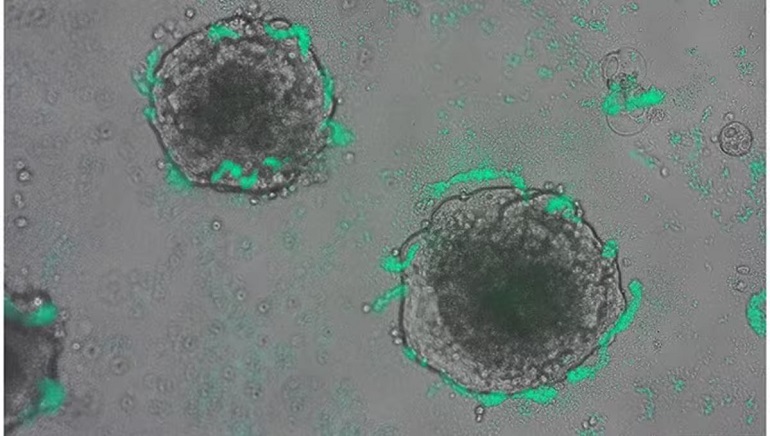A team of scientists at the University of California at San Diego, US have used CRISPR-based gene editing to create bacteria they believe can detect tumor DNA in the colons of mice. The researchers note that if the technology is applied successfully to humans, this would represent a non-invasive diagnostic tool that could identify cancer or pre-cancerous DNA. The study was recently published in the journal Science.
The researchers targeted a specific trait that certain bacteria have, i.e. the ability to take free-floating DNA from its environment into itself. The team then engineered a certain bacterium, Acinetobacter baylyi, to specifically ingest the DNA shed by colorectal cancer tumors. If a person has cancerous cells in their body, the engineered bacteria would endure and be able to signal the presence of those cells. If someone were cancer free, the bacteria would not survive to signal back, producing a negative result.
Jeff Hasty, PhD, a study lead and a professor at the UC San Diego School of Biological Sciences and Jacobs School of Engineering, in a press release, said that the research could someday produce a diagnostic tool that can locate tumors before a cancer starts or spreads.















